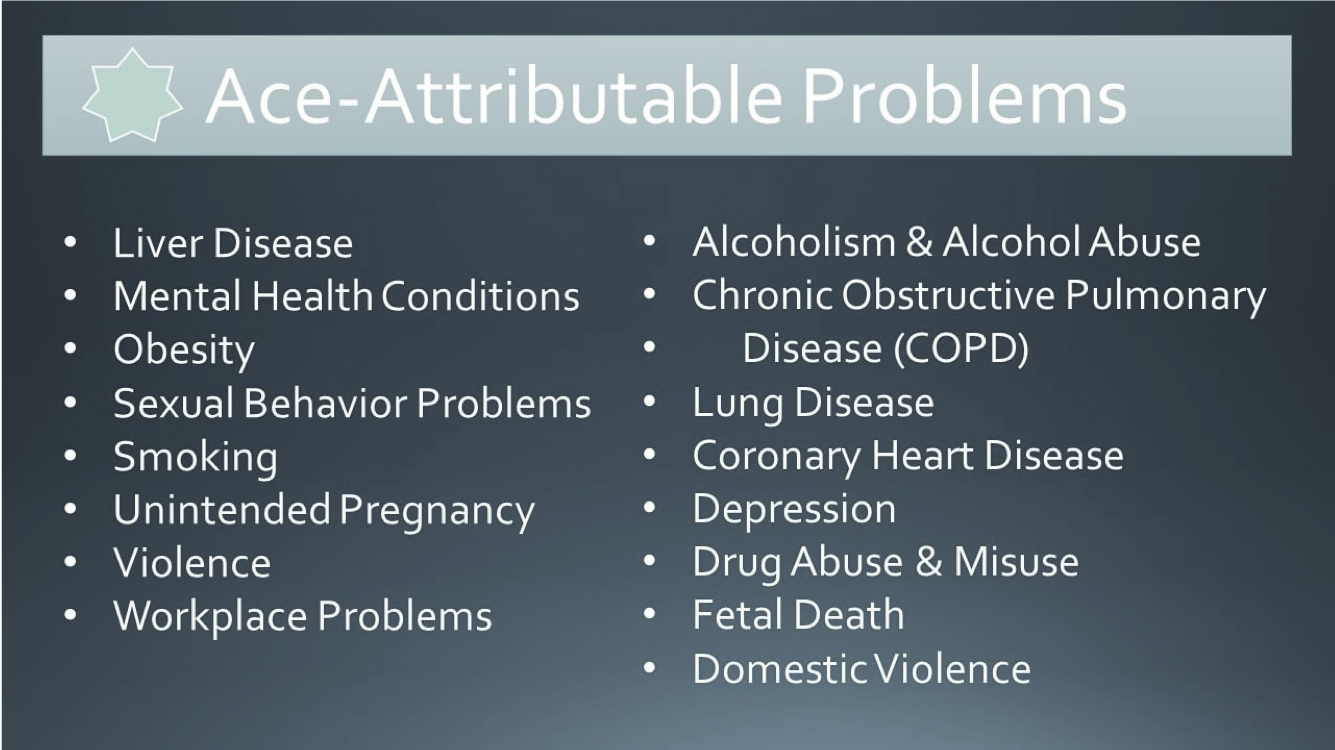The Relationship Between ACEs and Health |
Page 7 |
ACEs and future health conditions have been shown to be directly connected. During the original ACEs study adults were given a general health questionnaire as well as a survey regarding traumatic childhood events. They were also asked statistical information such as location, gender, age, etc.
What was found was that regardless of the statistical data asked there were higher rates of medical and behavioral issues for adults who experienced childhood trauma.
As explained earlier, the dose-response was also consistent with more severe medical outcomes when higher rates of childhood trauma were reported.
What was found was that regardless of the statistical data asked there were higher rates of medical and behavioral issues for adults who experienced childhood trauma.
As explained earlier, the dose-response was also consistent with more severe medical outcomes when higher rates of childhood trauma were reported.
In addition to the above mentioned ACE attributable problems the CDC Kaiser Permanente study showed 5 key points of interest:
Information according to ACEs Science FAQs; ACES Too High News; found at https://acestoohigh.com/aces-101/
- ACEs are common…nearly two-thirds (64%) of adults have at least one.
- They cause adult onset of chronic disease, such as cancer and heart disease, as well as mental illness, violence and being a victim of violence
- ACEs don’t occur alone….if you have one, there’s an 87% chance that you have two or more.
- The more ACEs you have, the greater the risk for chronic disease, mental illness, violence and being a victim of violence. For example, people with an ACE score of 4 are twice as likely to be smokers and seven times more likely to be alcoholic. Having an ACE score of 4 increases the risk of emphysema or chronic bronchitis by nearly 400 percent, and suicide by 1200 percent. People with high ACE scores are more likely to be violent, to have more marriages, more broken bones, more drug prescriptions, more depression, and more autoimmune diseases. People with an ACE score of 6 or higher are at risk of their lifespan being shortened by 20 years.
- ACEs are responsible for a big chunk of workplace absenteeism, and for costs in health care, emergency response, mental health and criminal justice. So, the fifth finding from the ACE Study is that childhood adversity contributes to most of our major chronic health, mental health, economic health and social health issues.
Information according to ACEs Science FAQs; ACES Too High News; found at https://acestoohigh.com/aces-101/


